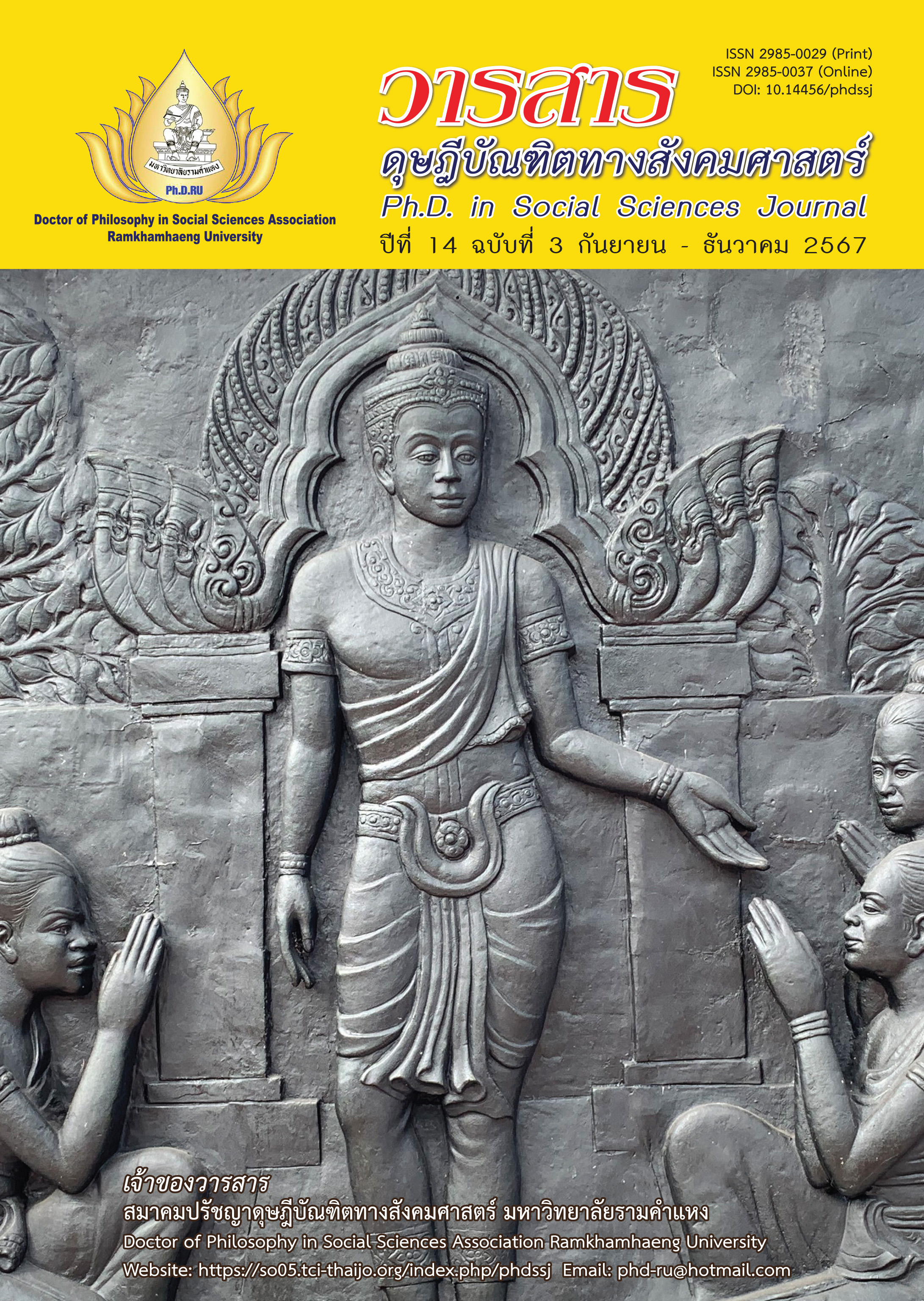Acceptance of Ex-Convict Employment by Enterprises to Return Good Inmates to Society
Main Article Content
Abstract
This research article aims to study (1) to study the development of prisoners to be ready before they were released to society and follow up with those who have been released from prison and have a job; (2) to study the acceptance of ex-convict employment of enterprises; and (3) to study problems, obstacles, and solutions in consenting to ex-convict employment of enterprises. This was a qualitative research study. Data were collected through documentary analysis, an in-depth interview, and a focus group discussion. Key informants were selected by purposive sampling consisting of four government officials, two enterprise owners, and ten ex-convicts in focus group discussion, for a total of sixteen informants. The data were analyzed by content analysis, and recommendations were proposed based on theories of data organizing.
Findings are as follows: (1) the development of prisoners to be ready before they were released focused on prisons and penal institutions to provide vocational training for inmates to have a profession that they can use to pursue a career after being released from prison, and the results of following up on the ex-convict employment of enterprises found that the enterprise owners were satisfied with the performance and behavior of the ex-convicts; (2) the acceptance of ex-convict employment in enterprises was found to be fair, and inequality should be reduced for those ex-convicts to be able to work and take care of themselves and their families. However, there were still many sections of the law that prohibited some careers; and (3) problems found that the acceptance of ex-convict employment of enterprises was the ex-convicts’ stigma background that made most enterprises not accept them to work, like a stuck stigma to the ex-convicts forever. Direct employment of enterprises was less because most were hired from labor contracting companies. Most of those ex-convicts needed some money to invest in a career and to be cleared of their stigma to be accepted in society.
Article Details

This work is licensed under a Creative Commons Attribution-NonCommercial-NoDerivatives 4.0 International License.
Academic articles, research articles, and book reviews in the Ph.D. in Social Sciences Journal are author’s opinions, and not the publisher’s, and is not the responsibility of the Ph.D. in Social Sciences Journal Philosophy Association, Ramkhamhaeng University. (In the case that research is done on human, the researcher has to be trained in Ethics for Doing Research on Human Training and has to produce the evidence of the training).
References
Becker, H. S. (1973). Consciousness, power and drug effects. Society, 10, 26-31.
Department of Corrections. (2018). Memorandum of agreement on coordination of cooperation in the Pracharath project to create jobs and create careers for inmates. Retrieved from http://www.correct.go.th/care/care1/wp-content/uploads/2022/06/MOU-โครงการประชารัฐ-ร่วมสร้างงาน-สร้างอาชีพผู้ต้องขัง.pdf [In Thai]
Department of Corrections. (2019). Department of Corrections action plan B.E. 2563-2565. Author. [In Thai]
Department of Corrections. (2023). Correctional inmate statistics report. Retrieved from http://www.correct.go.th/stathomepage [In Thai]
Lojaya, S. (2011). Acceptance of chief executive officers to employment of rehabilitated female ex-convicts: A case study of factories of Samutprakarn province. Master’s Thesis of Arts (Sociology), Chulalongkorn University. [In Thai]
Maltz, M, D. (2001). Recidivism. Academic Press.
Maslow, A. H. (1943). A theory of human motivation. Psychological Review, 50(4), 370-396.
Maslow, A. H. (1970). Motivation and personality (2nd ed.). Harper & Row.
Morris, N. (1951). The habitual criminal. Harvard University Press.
Paitoonpong, S., & Kulkolkarn, K. (2019). The acquitted person has no right to work. Retrieved from https://tdri.or.th/2019/02/career-for-penalty [In Thai]
Pattha, P. (2019). Professional skills training and inmate employment. Retrieved from https://www.parliament.go.th/ewtadmin/ewt/elaw_parcy/ewt_dl_link.php?nid=2168 [In Thai]
Sriwannawit, C., Sutthinarakorn, W., Jeerapattanatorn, P., & Khomsod, S. (2022). Vocational process for a better life preparation of prisoners after imprisonment. NRRU Community Research Journal, 16(2), 177-190. [In Thai]
Sykes, G. M. (1958). The society of captives: A study of a maximum security prison. Princeton University Press.
Thammasat University, Faculty of Law. (2020). Summary of the academic dialogue on personal information annulment, clearing guilt, restoring life with legal rights. Retrieved from https://www.law.tu.ac.th/seminar-summary-deletion-of-criminal-records [In Thai]


